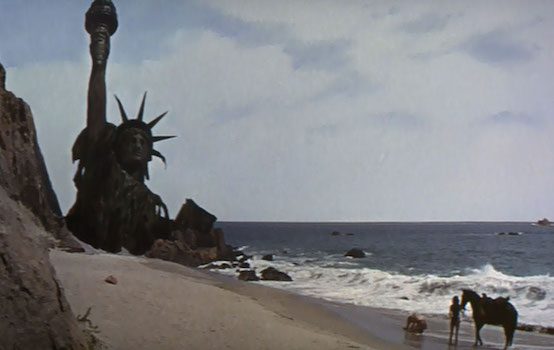The End of Endism?

Readers of The American Conservative—or anyone else interested in understanding how the United States in recent decades managed to squander so much so fast—might want to check out the Fall 2017 issue of the quarterly Hedgehog Review. The theme of this particular issue is “The End of the End of History?,” a reference to the essay that (question mark and all) catapulted Francis Fukuyama to global fame back in 1989. History had “ended,” Fukuyama proposed, when the passing of the Cold War left liberal democratic capitalism—a.k.a., the American Way of Life—without a plausible challenger. Our way had become the only way as others would inevitably acknowledge.
In fact, in the years that followed, history proved to be more resilient, willful, and stubbornly opaque than Fukuyama and the legions rushing to endorse “endism” imagined. With climate change endangering the planet and a sitting American president threatening “fire and fury like the world has never seen,” the end might be near, but it’s not the end that Fukuyama’s acolytes had in mind back when the collapse of communism seemingly resolved life’s ultimate questions.
The essays assembled in the Hedgehog Review include contributions by such notable scholars as James Davison Hunter, Patrick Deneen, Wilfred McClay, and Jackson Lears. Rather than offering a point-by-point rebuttal of Fukuyama’s thesis, they expose its very premises as bogus.
I will not try to summarize the content of their essays, which deserve to be read in full. Taken together, however, they offer many points worthy of reflection.

Chatham House, London/Flikr/WikimediaCommons
Point one: The utter fraudulence of contemporary American politics. Washington today serves as little more than a comedic theater of sorts. The principal players pretend to believe the lines they recite. A privileged audience of insider journalists, bureaucrats, lobbyists, and power brokers pretend to take the performance seriously. Yet this playacting is not without purpose. The aim is to stifle actual democracy in which citizens actively debate and engage with real issues.
Point two: The underlying liberal consensus. On stage, “conservatives” like Paul Ryan and Mitch McConnell pretend to duke it out with “progressives” like Nancy Pelosi and Chuck Schumer. Behind the curtain, meanwhile, a liberal consensus prevails and imparts direction to national life. Classical liberals herald the wonders of a market economy and limited government Progressive liberals look to the state to temper the excesses of the market and provide a pathway to utopia. Both sides purport to offer choice. But actual choice is illusory. “The result,” writes Patrick Deneen of Notre Dame, “is a political system that trumpets liberty, but which inescapably creates conditions of powerlessness, fragmentation, mistrust, and resentment.”
Point three: The war on (genuine) culture. Under whatever guise, liberalism is hostile to tradition, community, established norms, and the very idea of a common culture, all of which impinge upon the operation of the market or claims of radical individual autonomy. Subjected to sustained assault from the right and the left, Hunter of the University of Virginia warns, “the culture of democracy, which has long been the glue holding Americans together, has begun to dissolve.” What remains is a “procedural republic” no longer able to “address matters of identity and collective purpose.” Certain symbols command residual respect—hence, the ritualistic singing of the National Anthem before NFL games—but they are devoid of substance. What ails America? Short answer: It’s the culture, which liberalism has drained of meaning.
Point four: The triumph of technocracy. Americans, and especially American politicians, are constantly yapping about freedom. In practice, however, as Lears of Rutgers notes, freedom has essentially been reduced to “market choice.” Neoliberalism has created a “neoliberal self” intensively socialized to comply with “the ever more pervasive and relentless demands of market rationality.” Submit to the demands of globalization, young people are instructed, or else. Education is thereby reduced to “job training,” with a college degree “little more than a meal ticket.” In the marketplace, individuals become “human capital,” cogs in a system that offers the ephemera of lifestyle in exchange for actual moral autonomy. Look at any American city: lemmings crowd the sidewalk, heads down as they comply with the demands of whatever “personal electronic device” is supposedly a source of individual empowerment.
According to Fukuyama, the outcome of the great twentieth-century competition between fascism, communism, and democratic capitalism decided things once and for all. The good guys won. We may be grateful for the way that competition ended even if not sharing Fukuyama’s reading of its implications.
Yet each of the parties in that contest represented a variant of modernity. Although not inherently evil, the version that ultimately prevailed as the end of the last century was approaching was—and remains today—tawdry and superficial, devoid of even an iota of transcendence. Indeed, with the passage of time, the deficiencies of “our” modernity become ever more apparent.
That it works to the benefit of hipsters, cosmopolites, techies, and members of our proudly meritocratic elite is no doubt the case. Yet as Jackson Lears suggests in the conclusion to his essay, more than a few of the peons who have been trampled underfoot are awakening to the fact that they’ve been conned. The Bernie Sanders phenomenon hinted at their dissatisfaction. Donald Trump’s election to the presidency made it unmistakable. Modernity is not without challenge.
Meanwhile, history rolls on. Read the latest Hedgehog Review to learn where it might be headed.
Andrew Bacevich is writer-at large at The American Conservative.
Comments